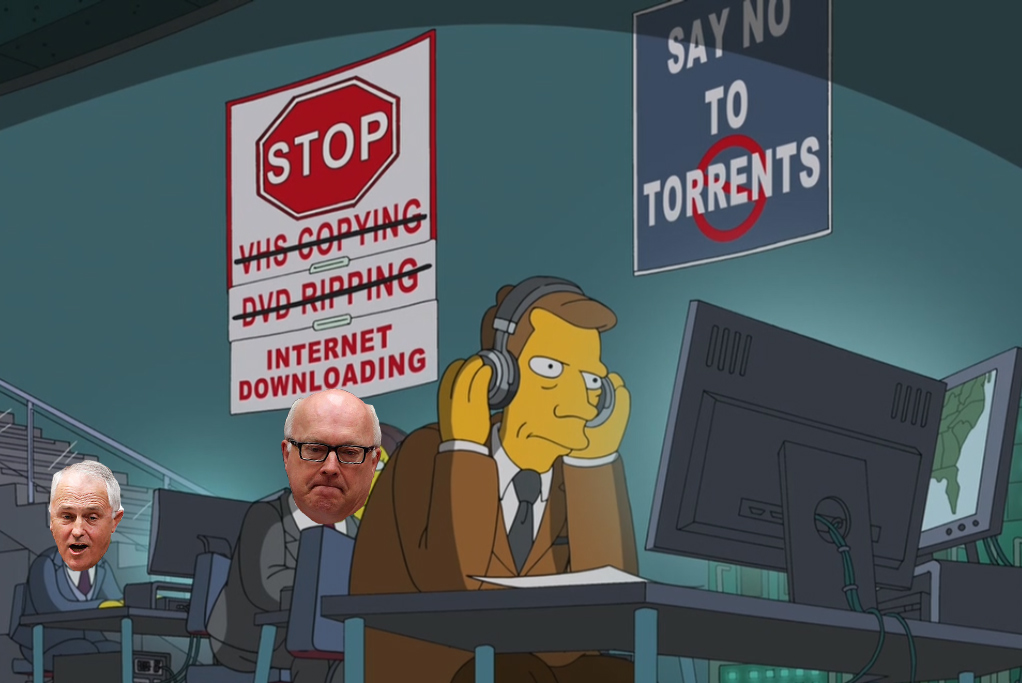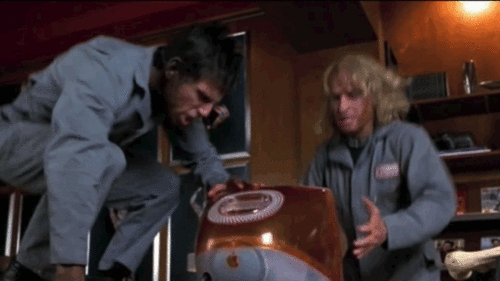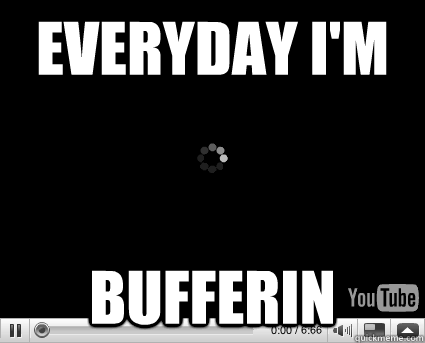The Government’s Going To Sort Out This Whole “Online Piracy” Business By Blocking Torrenting Sites
George Brandis and Malcolm Turnbull are reportedly presenting their reforms to the federal cabinet today.

It’s taken months of consultation, posturing and whining about THEM DAMN KIDS, but Attorney-General/boiled egg impersonator George Brandis and renowned silver fox/Communications Minister Malcolm Turnbull may have finally nutted out a solution to this whole online piracy problem. Nothing is confirmed as yet, but according to a report from Fairfax the two new media pros are currently presenting their new set of reforms to the government today in the final cabinet meeting of the year.
What is this ingenious scheme? Block The Pirate Bay.

Because internet filters have worked so well in the past, this plan would see a mechanism put in place to limit Australian access to popular torrenting sites. They are reportedly also pushing for a ‘warning’ system to be established whereby copyright holders and internet service providers would work together to track illegal activity and issue written notices to repeat offenders to scare them off. If ISPs aren’t willing to comply — which is pretty likely — the government is reportedly willing to jump on tougher legislative change at a later date.
Basically, the idea is to dawdle around for a little longer while someone else thinks of a better plan.
A warning system has in fact already been proposed in the past, but faces repeated roadblocks from the ISPs; though they oppose online piracy in principle, they’re basically unwilling to pay for the administrative costs associated with policing it. In the past, copyright owners have pushed for a system where ISPs cover half the cost, but legally speaking, there’s no reason why they should have to comply.
The idea of site-blocking could be equally as futile. Just as any Australian with a working Netflix subscription will tell you, there are very easy ways to get around the location tracking system. And, just as importantly, torrenting sites are nimble by nature. Despite offering support for the idea, the Communications Alliance has already been quick to point out that if these sites suddenly lose a large chunk of their most active users, there’s nothing stopping them popping up at new addresses. Or, alternatively, the filtering system could accidentally block valid sites.

Though thankfully avoiding any big penalties for Australian pirates, it’s fair to say there are still a few problems with this proposed plan. For one, it ignores the larger issues. A report released today by consumer group Choice has found that most people who download content illegally are actually totally willing to pay for it too. 49 percent of pirates surveyed stated the majority of the content they access is obtained legally, and the main reasons they cited for torrenting at all was the fact that local access is either too expensive or not timely enough. 64 percent said that if a website they wanted was blocked they would just find another way to access it.
“The problem with [the government’s] ideas is that they don’t address the reasons people pirate at all,” said Choice campaign manager Erin Turner. “No one wants to get ripped off, especially when they can see a better deal is being offered to others.”
“The content industry simply isn’t changing enough, or fast enough … Stopping the worst of piracy is possible, but only if the Government looks at the reasons behind people’s behaviour. Give people better access to timely, affordable content, and you’ll be giving people reasons to buy instead of pirate.”
Though much of that is outside the government’s control, we’ve seen promising steps forward in the past few months with the official announcement of an Australian Netflix and the upcoming launch of online streaming service Stan. But that does little for the film industry, which is still plagued by the problem of delayed release dates, and major shows like Game of Thrones which are subject to exclusive licensing deals with Foxtel.
Spoiler: this probably won’t be the dude to figure it all out.
Highlighted in pink: The areas where George Brandis is storing all the metadata. #RedHotBrandis pic.twitter.com/aKCm1NHGB6
— Creg (@cragget) November 15, 2014
–
Via SMH.